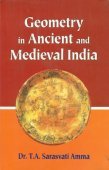Annal, Annaḷ, Aṇṇal, Aṉṉal, Annāḷ: 3 definitions
Introduction:
Annal means something in the history of ancient India, Tamil. If you want to know the exact meaning, history, etymology or English translation of this term then check out the descriptions on this page. Add your comment or reference to a book if you want to contribute to this summary article.
India history and geography
Source: Institut Français de Pondichéry: The Shaivite legends of KanchipuramAṇṇal (அண்ணல்) (in Tamil) refers to Śiya in Sanskrit, and represents one of the proper nouns mentioned in the Kanchipuranam, which narrates the Shaivite Legends of Kanchipuram—an ancient and sacred district in Tamil Nadu (India). The Kanchipuranam (mentioning Aṇṇal) reminds us that Kanchipuram represents an important seat of Hinduism where Vaishnavism and Shaivism have co-existed since ancient times.

The history of India traces the identification of countries, villages, towns and other regions of India, as well as mythology, zoology, royal dynasties, rulers, tribes, local festivities and traditions and regional languages. Ancient India enjoyed religious freedom and encourages the path of Dharma, a concept common to Buddhism, Hinduism, and Jainism.
Languages of India and abroad
Kannada-English dictionary
Source: Alar: Kannada-English corpusAnnaḷ (ಅನ್ನಳ್):—[noun] a woman of that sort,
Kannada is a Dravidian language (as opposed to the Indo-European language family) mainly spoken in the southwestern region of India.
Tamil dictionary
Source: DDSA: University of Madras: Tamil LexiconAṇṇal (அண்ணல்) noun < idem.
1. Greatness, exaltation, loftiness; பெருமை. (பிங்கலகண்டு) [perumai. (pingalagandu)]
2. Superiority; தலைமை. [thalaimai.] (திருக்கோவையார் [thirukkovaiyar] 256.)
3. King; அரசன். (சூடாமணிநிகண்டு) [arasan. (sudamaninigandu)]
4. Great man, superior; பெரு மையிற் சிறந்தோன். (பிங்கலகண்டு) [peru maiyir siranthon. (pingalagandu)]
5. Ruler in a forest-pasture tract; முல்லைநிலத் தலைவன். [mullainilath thalaivan.] (தொல். பொ. [thol. po.] 20, உரை. [urai.])
6. God, deity; கடவுள். அண்ணலருளா னண்ணி [kadavul. annalarula nanni] (சிவபிரகாசம் பொது [sivapiragasam pothu], 7).
--- OR ---
Aṉṉal (அன்னல்) noun < anala.
1. Sunshine. See அனல். (சம்பிரதாயவகராதி) [anal. (sambirathayavagarathi)]
2. Smoke; புகை. [pugai.] (ஈடு-முப்பத்தாறுயிரப்படி [idu-muppatharuyirappadi], 8, 5, 4.)
--- OR ---
Aṇṇal (அண்ணல்) noun < அண்-. [an-.]
1. Master, lord; தலைவன். அண்ணலா ரறுத்த கூலிகொண்டு [thalaivan. annala rarutha kuligondu] (பெரியபுராணம் அரிவாட். [periyapuranam arivad.] 11).
2. Father; தந்தை. (அரு. நி.) [thanthai. (aru. ni.)]
3. Preceptor, spiritual guide; குரு. [kuru.]
4. The Buddha; புத்தன். (பொதிகை நிகண்டு) [puthan. (pothigai nigandu)]
5. Śiva; சிவன். அண்ணலாரு மதுவுணர்ந்து [sivan. annalaru mathuvunarnthu] (பெரியபுராணம் திருநாவுக். [periyapuranam thirunavug.] 296).
6. Arhat; அருகன். (நாநார்த்த.) [arugan. (nagarthathipigai)]
7. Elder brother; அண்ணன். (நாநார்த்த.) [annan. (nagarthathipigai)]
--- OR ---
Annāḷ (அந்நாள்) noun < ஐந்து [ainthu] + நாள். [nal.] The fifth day after menses; பெண்டிர் மாதப்பூப்புக் குப்பின் ஐந்தாநாள். [pendir mathappuppug kuppin ainthanal.] Local usage
Tamil is an ancient language of India from the Dravidian family spoken by roughly 250 million people mainly in southern India and Sri Lanka.
See also (Relevant definitions)
Starts with: A-nalikal, Annale, Annalega, Annali, Annalige, Annalipsa, Annalvalli, Annalvi.
Ends with: Cannal, Chuvannal, Cuvannal, Jannal, Kannal, Kuppamannal, Kurannamannal, Kurannumannal, Kurumpannal, Kutannal, Mannal, Maramannal, Mukilurtiannal, Nannal, Pannal, Varattumannal.
Full-text (+621): Nilapita, Jantri, Itivritta, Anrai, Itivratt, Annatkuli, Oenothera clelandii, Puravritta, Gladiolus saundersii, Aconitum nagarum, Priva curtisiae, Ficus conglobata, Ficus talbotii, Aconitum moschatum, Daemonorops hallieriana, Tinospora bakis, Stephania glandulifera, Pachygone nitida, Aconitum deinorrhizum, Carpobrotus muirii.
Relevant text
Search found 70 books and stories containing Annal, Annaḷ, Aṇṇal, Aṉṉal, Annāḷ, Annaal; (plurals include: Annals, Annaḷs, Aṇṇals, Aṉṉals, Annāḷs, Annaals). You can also click to the full overview containing English textual excerpts. Below are direct links for the most relevant articles:
Tiruvaymoli (Thiruvaimozhi): English translation (by S. Satyamurthi Ayyangar)
Pasuram 6.5.8 < [Section 5 - Fifth Tiruvaymoli (Tuval il ma mani matam)]
Pasuram 3.6.5 < [Section 6 - Sixth Tiruvaymoli (Ceyya Tamaraik Kannan Ay)]
Pasuram 2.7.13 < [Section 7 - Seventh Tiruvaymoli (kecavan tamar)]
The Book and the Lamp < [January-February 1933]
The Book and the Lamp < [July – September, 1983]
Refusing to be History < [April – June, 1998]
Blue Annals (deb-ther sngon-po) (by George N. Roerich)
Chapter 5b - Kundeling Monastery print colophon < [Book 15 - Monastic Systems]
Book 13 - Cutting and Kharakpa
Chapter 4a - Untitled responses to questions regarding the Blue Annals < [Book 15 - Monastic Systems]
Bhagavatpadabhyudaya by Lakshmana Suri (study) (by Lathika M. P.)
Śaṅkaradigvijaya (list of available works) < [Chapter 4 - Similarities and Dissimilarities]
Tibet (Myth, Religion and History) (by Tsewang Gyalpo Arya)
6. Rupati and His Platoon < [Chapter 1 - Early Tibetan Origin Myth]
2. Genesis; the Tibetan Calendar < [Chapter 4 - King Srongtsan Gampo and His Period]
4. Nyatri Tsanpo as descendant of Indian Shakya kings < [Chapter 3 - Nyatri Tsanpo; The First King of Tibet]
Bodhisattvacharyavatara (by Andreas Kretschmar)
Text Section 97 < [Khenpo Chöga’s Oral Explanations]
Text Section 41 < [Khenpo Chöga’s Oral Explanations]
Related products
